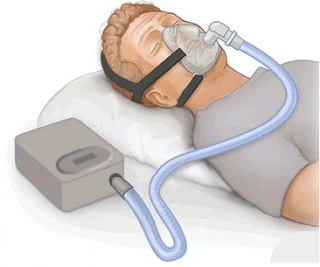Sleep
Medicine Instead Of CPAP For Obstructive Sleep Apnea?
Study offers hope for new treatment of common nighttime breathing disorder
Posted February 3, 2013
Does the prospect of having to wear CPAP each night, every night, for the foreseeable future keep you from sleeping? A new study holds out the promise of one day being able to treat obstructive sleep apnea with a pill, instead of CPAP.
Obstructive sleep apnea, a condition in which the muscles of the throat relax to the point that the throat actually collapses, blocking airflow to the lungs, and resulting in dozens, even hundreds of awakenings at night, is a condition from which millions of Americans suffer.
As anyone who has ever carried a sleeping child to his bed well knows, muscle relaxation is part of sleep. What is less commonly appreciated, however, is that this relaxation is especially prominent in a stage of sleep known as REM (rapid eye movement) sleep. In REM, we lose muscle tone in almost all of our muscles, except for our eye muscles (hence its name) and our diaphragm, the largest muscle involved in breathing. On the one hand, this is a good thing: if not, we’d be running into walls and tripping over night tables as we acted out our dreams. On the other hand, this loss of muscle tone extends to the muscles of our throat, making them more prone to collapse, and making us especially prone to OSA during this sleep state, which comprises 25 percent of sleep.
Researchers at the University of Toronto reported this week that they have identified the main mechanism responsible for the relaxation of the throat muscles in REM sleep, as well as a way to medically reverse it (in rats, not in humans, though it is likely

to be very similar in both species). This is great news, as millions of people struggle nightly with CPAP, a machine that blows air into their throat, so that they can breathe (and sleep) comfortably at night.
Many people with obstructive sleep apnea dislike, and therefore don’t use, CPAP. Those who forgo treating their obstructive sleep apnea have to deal not only with being chronically sleepy, but also with increased risk of heart disease, diabetes, and high blood pressure. This discovery is terrifically important, as it holds out the promise that it may be possible, within a few years, to treat obstructive sleep apnea with a pill instead of CPAP.
_____
Dennis Rosen, M.D.
Help your child get a great night's sleep with the new ebook:
Successful Sleep Strategies for Kids (a Harvard Medical School Guide)


